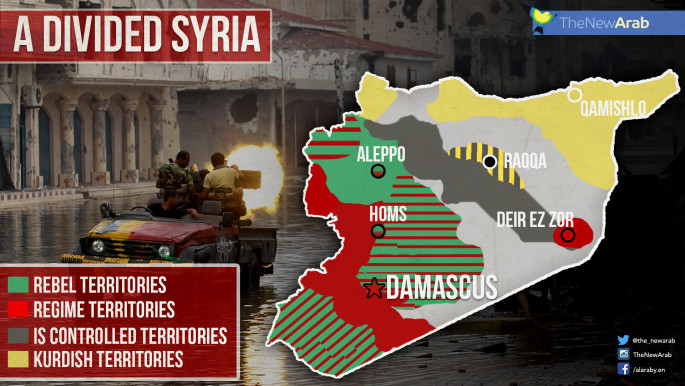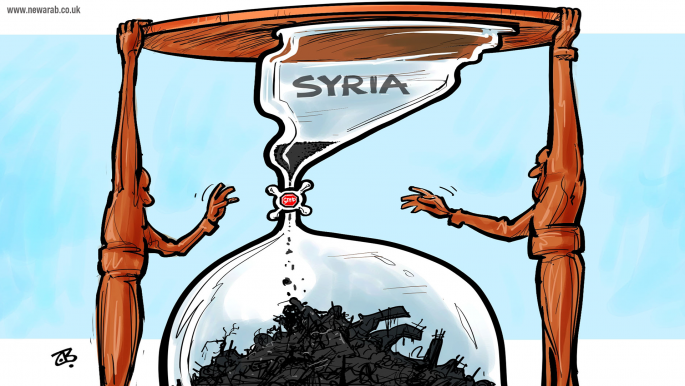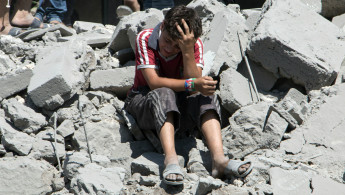Six years of suffering in Syria
A United States-Russia-led ceasefire deal was announced earlier this week, in hopes of ending the bloodshed in the country that has seen more than 260,000 people killed.
As their country is reduced to ruins around them, Syrian men, women and children - often the objects of deliberate attack - are fleeing their homes in an uncertain and often perilous search for safe haven.
More than 110,000 people have already crossed the Mediterranean to Greece and Italy so far this year - 413 have lost their lives trying to do so. In February alone, an estimated 35,000 people reached the Greek islands, nearly half of them were Syrians.
According to a United Nations survey, 94 percent of Syrians who arrived in Greece last month said their main reason for making the treacherous journey was to flee conflict and violence, while 85 percent said they had been internally displaced inside Syria before fleeing the country.
 |
94 percent of Syrians who arrived in Greece last month said their main reason for making the treacherous journey was to flee conflict and violence |  |
"We are seeing an overwhelming, yet consistent, intensification of external military involvement in Syria by all parties, with devastating consequences for civilians and various communities," said Paulo Sérgio Pinheiro, chair of the International Commission of Inquiry on Syria.
Established by the UN Human Rights Council in August 2011, the Commission was mandated to investigate and record all violations of international human rights law during the Syria conflict.
"With the intensification of airstrikes, there are few safe places for civilians," Pinheiro stressed.
 |
With the intensification of airstrikes, there are few safe places for civilians |  |
 |
|
A new report by the Commission details the catastrophic destruction of civilian infrastructure, including medical care and educational facilities, public spaces, electricity and water installations.
It said crimes against humanity continue to be committed both by government forces and militias such as the Islamic State group, adding that the commission of war crimes by belligerents remains rampant.
Aerial bombing by Assad-allied forces of areas not controlled by Damascus have caused hundreds of civilian casualties, mass displacements, and destruction of vital civilian infrastructure.
All warring parties, including pro-government forces, anti-government armed groups, and "terrorist" groups, carry out indiscriminate attacks by firing shells into civilian-inhabited areas under control of the opposition, the report says.
"The damage wrought on Syria by this war cannot be measured solely by loss of life and the physical destruction of the country," said Commissioner Vitit Muntarbhorn.
"The war has also devastated the nation of Syria, ripping asunder the ties that bind its communities and cultures together."
 |
The war has devastated the nation of Syria, ripping asunder the ties that bind its communities and cultures together |  |
The report also finds that cultural heritage sites, which are important to Syria and the world, are also being destroyed and damaged through deliberate and incidental attacks.
It emphasises the need for concerted and sustained international action to find a political solution to end the violence and to stop the rampancy of war crimes and grave violations of human rights.
"Humanitarian space is shrinking daily, while flagrant violations of human rights and international humanitarian law continue with blatant impunity," said Commission member Carla Del Ponte.
"The call for peace is now more urgent than ever, but momentum must be sustained to ensure an all-inclusive, Syrian-led process."
 |
|
| Syrians continue to suffer [by Emad Hajjaj, copyright The New Arab] |



